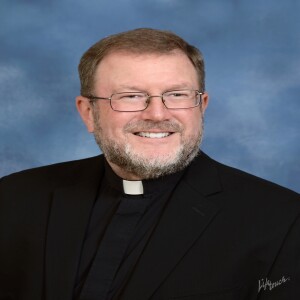

2025 Mar 30 SUN: FOURTH SUNDAY OF LENT
Jos 5: 9a. 10-12/ Ps 34: 2-3. 4-5. 6-7 (9a) / 2 Cor 5: 17-21/ Lk 15: 1-3. 11-32
Well, we are coming close to the celebration of Holy Week and the Easter Triduum. And I ask you especially to keep Holy Thursday in mind. We'll have the Mass of the Lord's Supper here Thursday, April 17th at 7 p.m. And you know that there is an element of Holy Thursday which is very, very dear to the heart of Pope Francis. And obviously he is not going to be doing this himself this year. But we need to do it, all the while praying for his good health and his recovery. It's the washing of feet. And you know that Pope Francis has gone to various places in Rome on Holy Thursday to perform the foot washing. And very often he goes to prisons when he washes the feet of men and women alike. And many of the people are not Catholic or Christian. But he has gone and he has performed this singular demonstration of service as a prelude to his ultimate service of offering himself on the altar of the cross. So please keep the Holy Thursday Mass of the Lord's Supper in mind. And think of the fact that our God does go to people who think they are abandoned or who think they have lost any chance of being united with God. I believe that makes for a very powerful prayer.
So today we have heard a very well-known story told by Jesus. And I consider it his second most annoying parable. I think the most annoying is the one about the workers in the vineyard who get surprised at the end of the day by the way in which the owner of the vineyard pays them for their day's work. Jesus meant for these parables to be annoying, to be provocative. And we find ourselves in this parable saying, "What would we do if we were in this situation? What if I were the younger son? What if I were the older son? What if I were the father?" These parables are intended to work on us. And as we are reminded here today, Jesus directed this parable to the scribes and Pharisees: people who had hardened their hearts against Jesus, who thought that they had no need to listen to him.
I've been thinking about the connection between this parable and the first reading from the book of Joshua. And it is a somewhat obscure reading and it does require a certain amount of explanation. Joshua was Moses' aide. And when Moses died, Joshua took over as the leader of the people, and at long last they emerged from their 40 years in the wilderness. They emerged into the land which God had promised to them. And I think the connection between Joshua and the parable is that it has to do with the expression we have, "coming into one's own." And we use that expression to mean that after much preparation and much anticipation, the person finally comes into his or her vocation and is able at last to use the abilities God gave to them.
I believe that this parable is about a man who had a strange idea of what it meant to come into his own. He said, "Give me the share of the estate even though you're not dead yet." And then he took all that wealth and yeah, his life was a never-ending party.
Well, of course, never-ending parties come to an end. But this is what is going on. He has a very maladaptive idea of what life is about. And he discovers what it really is as his father welcomes him back.
We also have from St. Paul a discussion of the uniqueness of Jesus. And of course we will be celebrating his uniqueness as our Savior, particularly in the Easter Triduum. St. Paul says, "God made him who did not know sin to be sin," which may be a rather puzzling statement to us. We can actually develop it by saying he became a sin offering, and in fact he became THE sin offering. It was he who bore our sins and all the effects of the sin of this world in order to liberate us.
And so we have something pointing us directly toward Easter. And we open our hearts in thanksgiving to this personal gift of the Son of God who became one of us and has loved us sufficiently so that we too can come home.
More Episodes
All Episodes>>You may also like
Create Your Podcast In Minutes
- Full-featured podcast site
- Unlimited storage and bandwidth
- Comprehensive podcast stats
- Distribute to Apple Podcasts, Spotify, and more
- Make money with your podcast












